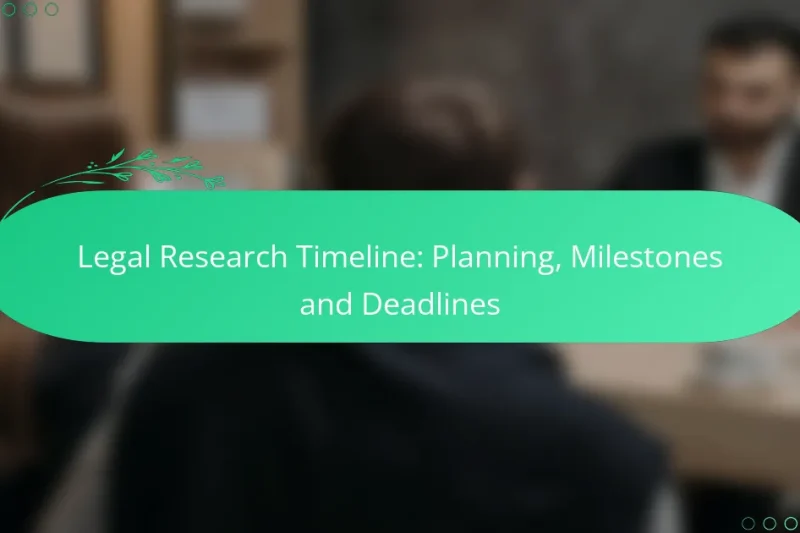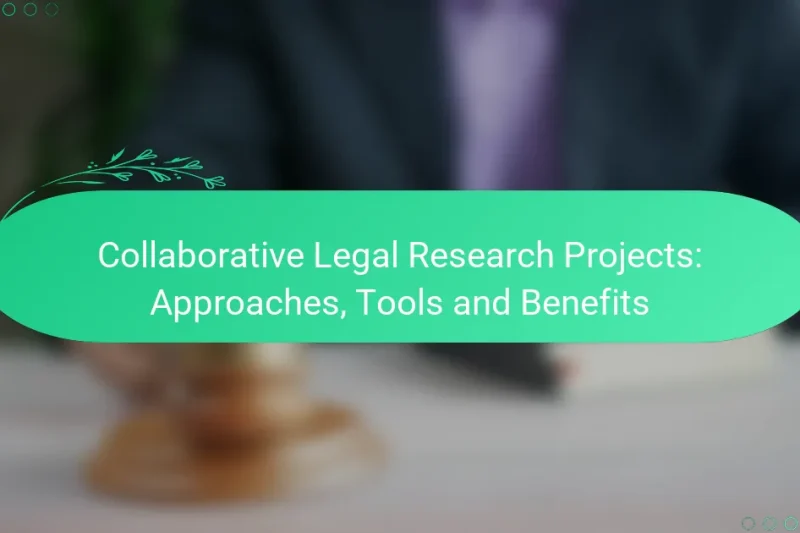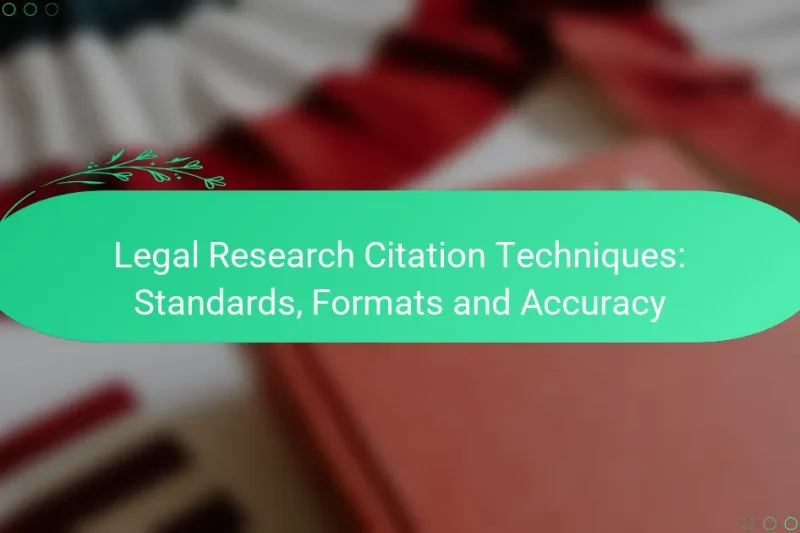Boolean search techniques are essential for navigating legal databases, allowing professionals to refine their search results … Legal Databases: Boolean Search Techniques, Operators and StrategiesRead more
Legal Research Strategies
Effective legal research strategies are essential for navigating the complexities of law in the UK. By leveraging a mix of online databases, law libraries, and expert consultations, researchers can access the comprehensive legal information necessary for informed decision-making. Selecting the right tools tailored to specific needs enhances the research process, ensuring efficiency and accuracy.
Legal Studies Literature Review: Methods, Sources and Analysis
In the field of legal studies, literature reviews serve as a critical tool for synthesizing research … Legal Studies Literature Review: Methods, Sources and AnalysisRead more
Cross-Jurisdictional Legal Research: Strategies, Tools and Challenges
Cross-jurisdictional legal research is essential for legal professionals navigating the complexities of diverse legal systems. Effective … Cross-Jurisdictional Legal Research: Strategies, Tools and ChallengesRead more
Legal Research Timeline: Planning, Milestones and Deadlines
The legal research timeline in the UK provides a structured approach for legal professionals to conduct … Legal Research Timeline: Planning, Milestones and DeadlinesRead more
Legal Research Plan: Objectives, Structure and Resources
A legal research plan is essential for effectively addressing specific legal issues and ensuring that research … Legal Research Plan: Objectives, Structure and ResourcesRead more
Collaborative Legal Research Projects: Approaches, Tools and Benefits
Collaborative legal research projects in the UK thrive on teamwork, technology, and effective communication, leading to … Collaborative Legal Research Projects: Approaches, Tools and BenefitsRead more
Legal Research Citation Techniques: Standards, Formats and Accuracy
Effective legal research citation techniques are crucial for maintaining clarity and accuracy in legal documents. By … Legal Research Citation Techniques: Standards, Formats and AccuracyRead more
What are effective legal research strategies in the UK?
Effective legal research strategies in the UK involve utilizing a combination of online legal databases, law libraries, and consultations with legal professionals. These methods ensure comprehensive access to legal information and resources necessary for informed decision-making.
Utilizing online legal databases
Online legal databases are essential tools for legal research in the UK, providing access to case law, statutes, and legal commentary. Popular platforms include Westlaw, LexisNexis, and Practical Law, which offer extensive collections of legal materials and advanced search functionalities.
When using these databases, focus on specific keywords and phrases relevant to your research topic. Utilize filters to narrow down results by jurisdiction, date, or document type. This targeted approach can save time and yield more relevant results.
Leveraging law libraries
Law libraries, such as those found in universities or local law societies, offer valuable resources for legal research. These libraries typically house a wide range of legal texts, journals, and reference materials that may not be available online.
Visiting a law library allows for hands-on research and the opportunity to consult with librarians who specialize in legal resources. Take advantage of the library’s catalog and seek assistance in locating specific texts or understanding legal concepts.
Consulting legal professionals
Consulting with legal professionals can provide insights and guidance that enhance your legal research. Engaging with solicitors, barristers, or legal advisors can clarify complex legal issues and direct you to pertinent resources.
When seeking professional advice, prepare specific questions and provide context regarding your research. This preparation can lead to more effective discussions and help you gain a deeper understanding of the legal landscape relevant to your inquiry.
How to choose the right legal research tools?
Selecting the right legal research tools involves understanding your specific needs and the features offered by various databases. Focus on the tools that provide comprehensive access to relevant legal materials, user-friendly interfaces, and cost-effective subscription options.
Evaluating database features
When evaluating legal research databases, consider the breadth and depth of their content. Look for databases that include case law, statutes, regulations, and secondary sources relevant to your jurisdiction. Features like advanced search capabilities, citation tools, and analytical resources can significantly enhance your research efficiency.
Additionally, check for integration with other legal software you may use, such as case management systems. This can streamline your workflow and improve productivity.
Considering user interface and accessibility
A user-friendly interface is crucial for effective legal research. Look for tools that offer intuitive navigation, clear categorization of resources, and helpful search filters. Accessibility features, such as mobile compatibility and support for assistive technologies, can also be important for users with specific needs.
Testing the interface with a trial version can provide insight into how easily you can locate and utilize the resources you need. Pay attention to the learning curve and available support resources, such as tutorials or customer service.
Assessing subscription costs
Subscription costs for legal research tools can vary widely, from hundreds to thousands of dollars annually. Consider your budget and the scale of your research needs when evaluating options. Some databases offer tiered pricing based on features or access levels, which can help you find a suitable plan.
Be aware of additional costs, such as fees for accessing certain documents or services. It may be beneficial to compare the total cost of ownership, including potential discounts for long-term commitments or bundled services.
What are the best online legal research platforms?
The best online legal research platforms provide comprehensive access to legal documents, case law, and secondary sources. Key options include Westlaw UK, LexisNexis, and HeinOnline, each offering unique features suited to different research needs.
Westlaw UK
Westlaw UK is a leading legal research platform that offers a vast database of UK case law, statutes, and legal journals. It is known for its user-friendly interface and advanced search capabilities, allowing users to quickly find relevant legal materials.
One of its standout features is the ability to access annotated legislation and case summaries, which can significantly streamline the research process. Subscriptions typically range from a few hundred to several thousand pounds annually, depending on the level of access required.
LexisNexis
LexisNexis is another prominent legal research tool that provides extensive resources, including case law, statutes, and legal commentary. It is particularly valued for its comprehensive news coverage and legal analysis, making it a popular choice among practitioners.
This platform offers various subscription models, allowing firms to choose packages based on their specific needs. Users should be aware of the learning curve associated with its advanced features, which can enhance research efficiency once mastered.
HeinOnline
HeinOnline specializes in historical and government documents, making it an excellent resource for in-depth legal research. It includes a vast collection of law journals, treaties, and legislative histories, which are invaluable for academic and historical legal studies.
While HeinOnline may not have the same breadth of current case law as Westlaw UK or LexisNexis, it excels in providing access to primary sources and secondary literature. Subscriptions are generally more affordable, often appealing to students and smaller firms looking for comprehensive research without a hefty price tag.
How to conduct legal research efficiently?
Efficient legal research involves a structured approach to finding relevant laws, cases, and legal opinions. By utilizing specific strategies, researchers can save time and improve the quality of their findings.
Creating a research plan
A well-defined research plan is crucial for effective legal research. Start by identifying the legal issue or question at hand, and outline the key terms and concepts related to it. This will guide your search and help you stay focused.
Consider breaking down your research into stages, such as preliminary research, in-depth analysis, and synthesis of findings. This structured approach allows for a more thorough exploration of the topic.
Using Boolean search techniques
Boolean search techniques enhance the efficiency of legal research by allowing you to combine keywords with operators like AND, OR, and NOT. For example, searching for “contract AND breach” will yield results that contain both terms, narrowing your focus.
Experiment with different combinations of keywords to refine your search results. Using parentheses can also help structure complex queries, such as “(contract OR agreement) AND (breach NOT minor).” This technique can significantly reduce irrelevant results.
Organizing findings systematically
Systematic organization of research findings is essential for easy access and reference. Create a digital or physical filing system that categorizes documents by topic, jurisdiction, or type of law. This will streamline the retrieval process when you need to reference your findings.
Consider using citation management software to keep track of sources and generate citations automatically. This not only saves time but also ensures accuracy in your references, which is vital in legal contexts.
What are common pitfalls in legal research?
Common pitfalls in legal research include neglecting primary sources, overlooking jurisdictional differences, and failing to update legal information. These mistakes can lead to inaccurate conclusions and ineffective legal strategies.
Neglecting primary sources
Neglecting primary sources can severely undermine the quality of legal research. Primary sources, such as statutes, regulations, and case law, are the foundation of legal authority and should be prioritized in any research effort.
To avoid this pitfall, always start with primary sources relevant to your legal issue. For example, if researching a contract dispute, locate the actual contract and any related statutes or case law that directly address the matter.
Overlooking jurisdictional differences
Overlooking jurisdictional differences can lead to applying incorrect laws or legal principles. Laws can vary significantly between states or countries, affecting the outcome of legal arguments.
When conducting legal research, pay close attention to the jurisdiction relevant to your case. For instance, a law that applies in California may not hold in New York, so ensure that your sources are specific to the applicable jurisdiction.
Failing to update legal information
Failing to update legal information can result in relying on outdated laws or precedents. Legal standards and regulations frequently change, making it essential to verify that your sources are current.
To mitigate this risk, always check the publication date of your sources and look for recent case law or amendments to statutes. Using legal databases that provide updates can help ensure you are working with the most recent information available.
What are the prerequisites for effective legal research?
Effective legal research requires a solid understanding of legal terminology, access to reliable resources, and familiarity with research methodologies. These prerequisites ensure that researchers can accurately interpret legal texts and find relevant information efficiently.
Understanding legal terminology
Grasping legal terminology is crucial for effective legal research, as it allows researchers to comprehend statutes, case law, and legal documents accurately. Familiarity with terms such as “plaintiff,” “defendant,” “tort,” and “jurisdiction” can significantly enhance the quality of research.
To build a strong foundation, consider using legal dictionaries and glossaries that define common terms and phrases. Online resources, such as legal blogs and educational websites, can also provide context and examples of how specific terms are used in practice.
When encountering unfamiliar terminology, take the time to look it up rather than making assumptions. Misinterpretation of legal terms can lead to incorrect conclusions and affect the outcome of legal arguments or research findings.






